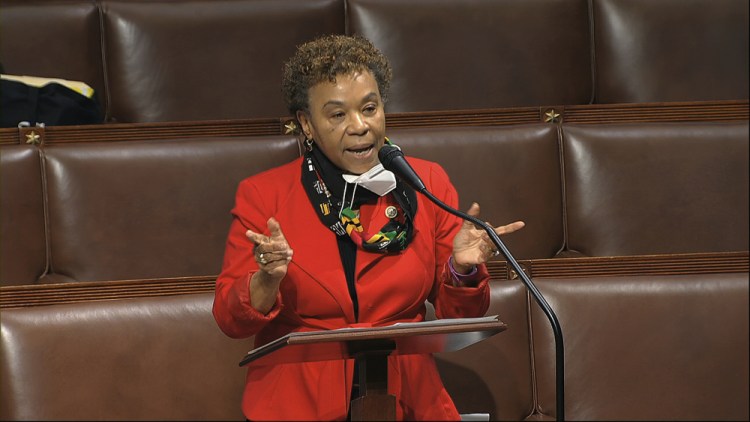WASHINGTON — The House of Representatives voted Thursday to repeal the authority Congress granted in 2002 to wage war on Iraq and Saddam Hussein.
The House vote was broadly bipartisan, reflecting growing frustration in both parties with presidential war powers that have been used well past their original goals.
The 2002 Iraq Authorization for the Use of Military Force allowed then-President George W. Bush to invade the country, to remove then-dictator Saddam Hussein and capture his alleged weapons of mass destruction.
Saddam was removed and executed, but no weapons of mass destruction were ever found. The region became destabilized, leading to the rise of the so-called Islamic State and the regional dominance of Iran.
Lawmakers argued that the authorization has long outlived its dubious purpose, and that leaving it on the books gives presidents a tool to circumvent Congress’ war-making authority without having to submit for approval a blueprint for combating America’s enemies.
“Repealing this outdated authorization is about planning strategically for our future,” said Rep. Gregory Meeks, D-N.Y., the chairman of the House Foreign Affairs Committee. “It is about Congress reclaiming its constitutional obligation to weigh in on matters of war and peace.”
The repeal passed 268 to 161, with 49 Republicans joining Democrats on the vote.
Opponents of the repeal argued that the White House still needs the authorization to conduct military operations in the region, and that Democrats leading the push are motivated by hatred of former President Donald Trump.
As proof, Texas Rep. Michael McCaul, the top Republican on the Foreign Affairs Committee, pointed to Trump’s strike against the leader of Iran’s military Quds Force.
“This feels like yet another political effort to undo one of President Trump’s boldest counterterrorism successes, using the 2002 AUMF to remove Qassem Soleimani from the battlefield,” McCaul said.
He and other supporters said it was fine to end the 2002 war powers, but that it should be replaced with something else to keep Iran in check.
Meeks countered that the Trump administration did not solely rely on the Iraq War resolution, but also the 2001 authorization to attack al-Qaida and Afghanistan, as well as the president’s inherent defense powers listed in Article 2 of the Constitution.
“The case for repealing the 2002 AUMF is unassailable,” Meeks argued. “The 2002 AUMF would have no effect on any ongoing military operations in Iraq. The United States is not relying on the 2002 AUMF as the sole authority for any military operations.”
House Speaker Nancy Pelosi said that after 18 years, it’s time to close at least one door allowing presidents a free hand with the military.
“It is the Congress who has the sole duty to declare war,” said Pelosi, D-Calif. “We must reassert that authority to decide if and when our country goes to war.”
The measure is likely to find support in the Senate, where Senate Majority Leader Chuck Schumer, D-N.Y., has said he supports it. It remains unclear whether enough Republican senators will agree.
The White House signaled that it supports the repeal of the AUMF for Iraq, but suggested the 2001 authorization for Afghanistan, while outdated, should stand until it can be replaced.
Copy the Story LinkSend questions/comments to the editors.



Success. Please wait for the page to reload. If the page does not reload within 5 seconds, please refresh the page.
Enter your email and password to access comments.
Hi, to comment on stories you must . This profile is in addition to your subscription and website login.
Already have a commenting profile? .
Invalid username/password.
Please check your email to confirm and complete your registration.
Only subscribers are eligible to post comments. Please subscribe or login first for digital access. Here’s why.
Use the form below to reset your password. When you've submitted your account email, we will send an email with a reset code.